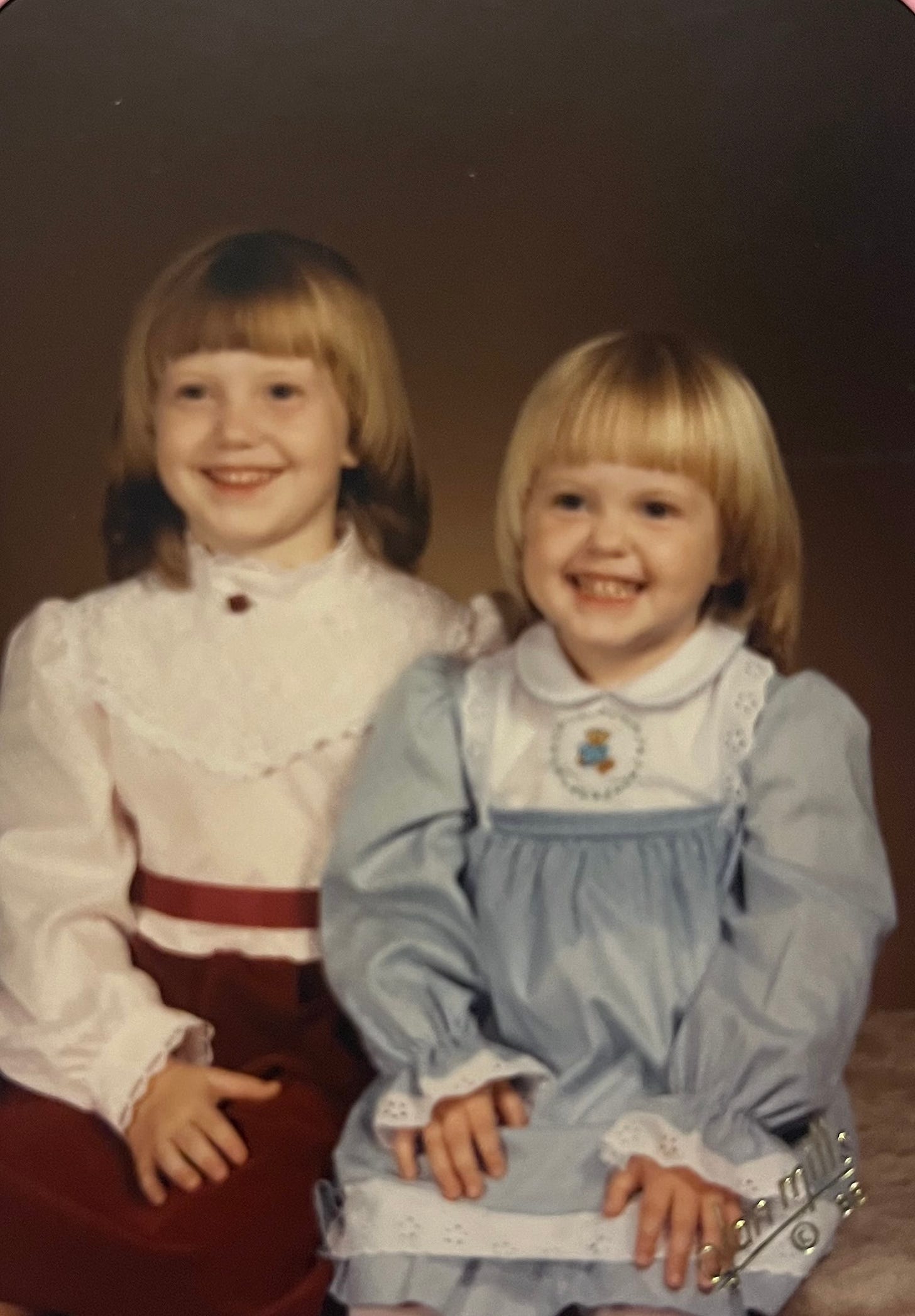My sister and I are very close. We’re just under two years apart, and unlike some sibling pairs who are practically each other’s opposites, we are very, very much alike in very, very many ways.

Honestly, she is the cooler one, the real brand name Barbie next to my dollar store version. Loving oneself is hard. But loving someone who is very much like you is easy, and just delightful.
A few years ago, my sister gave me a book: Vincent and Theo: the Van Gogh Brothers. Basically, it’s a non-fiction love story between Vincent Van Gogh, the famous painter, and his younger brother Theo Van Gogh, an art dealer. It was brilliantly pieced together by writer Deborah Heiligman through letters written between them, their family, and friends throughout their lives. I cried through the last several chapters. I was in a tap room at the time, and it’s possible people thought I was just drunk. That’s okay.
Like my sister and I, they remained closer to each other than to anyone else in the family throughout their lives. After Vincent died, Theo followed not even a full seven months later.
“My only fear about moving to Mexico with you after I retire,” my sister told me the other day, “is that you could predecease me. What would I do alone in Mexico?”
This is not something I had thought about, but if we make all our plans with death in mind, we’ll never do anything. Besides, awful is awful no matter where you are.
But the thought of having her here with me is thrilling. We’ve lived together before, and those have been some of the happiest times of my life. Living in another country is an adventure, even after a few decades have passed. But there’s also something special, and missed when it’s absent, about being around people who have not only grown up in your culture speaking your language, but who have known you your entire life. Did a poet ever say that to be loved is to be known, or something? Surely someone said something like that, because I definitely didn’t make it up myself.
The story of Vincent and Theo is one of lots of love, and also lots of anguish. Vincent’s intensely mental and emotional roller-coaster rides affected everyone around him, often negatively. He was beyond simply eccentric, definitely depressive, possibly bipolar. His family wrote often about him not eating enough, or even bathing, caring nothing for his appearance, shacking up with the wrong types of women. At one point, he lost nearly all his teeth from malnutrition (he later had them fixed). Basically, he looked and acted like a crazy person.
Chances are, we’ve all got a Vincent (or three) in our families.
But during his life, he made lots and lots of art, which has, in the end, proved timeless. Many of his paintings, including some of the most famous ones like The Starry Night, were done when he was living in a mental institution.
Vincent never really made any money; his brother supported him throughout his life, sending him money for rent, canvases, paints, and brushes. Theo believed in his work, and knew it would someday be widely revered.
In return, Vincent would send Theo his paintings, and work tirelessly at getting better with the ultimate goal of getting them good enough to sell, so he could pay his brother back for the lifelong help he’d lent him. While he did receive some renown during his life among other painters, none of his paintings actually sold until toward the very end of his short, tortured life.
Thankfully, one doesn’t have to be perfect to receive a sibling’s love: sometimes you’re lucky enough that it just gets lathered on for free.
Reading the book, it was hard not to think of all the sibling pairs I know and classify them as either “a Vincent” or “a Theo.” I am certainly a Vincent, as is my partner. My dad is 100% the Vincent to his brother’s Theo.
One sibling is practical, building his house out of sturdy brick, while the other’s an artistic idealist, doing things like moving to Mexico for love and figuring the rent will just figure out a way to pay itself (pro tip: it does not). We let our idealism take the reigns, and are somehow loved and appreciated for it, and supported more than we’d like to admit.
Strangely, the elder always seems to be the Vincent of the two. Is there something about older siblings that makes them this way, while the younger ones see the writing on the wall and just get to work, knowing it will fall on them when the goings get tough?
Anyway: I don’t think any of us are quite as fucked up as Vincent, and we’re almost certainly not as talented, either. All comparisons fall apart at some point, so I guess this is that point here. I hope the “barely being able to support ourselves through our art” is also a diverging point, though in my own case, it’s not looking promising.
Every Vincent needs a Theo, and every Theo needs a Vincent. I’m glad I’ve got mine.









